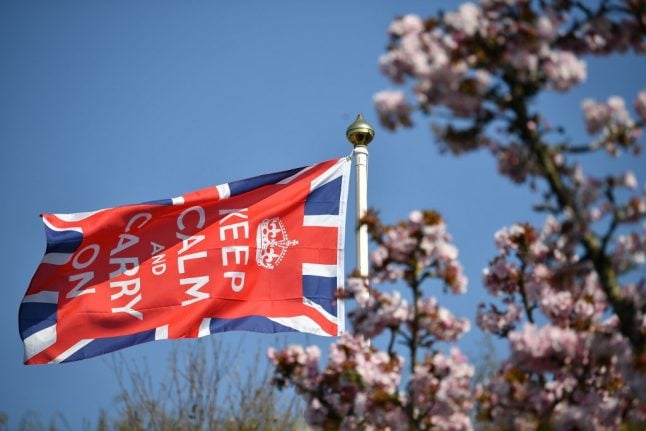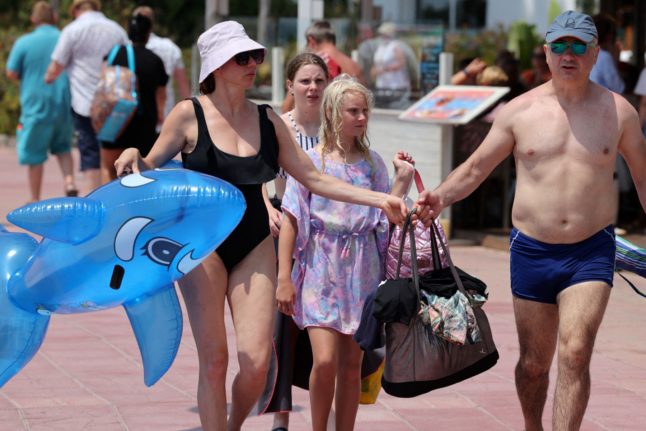Brexit has, quite rightly, not topped anyone’s priority list recently, either in the UK or EU. Most resources are being directed at fighting the coronavirus outbreak, leaving little room for progressing the Brexit trade negotiations.
The British government has redirected resources, including 25,000 civil service staff who were exclusively working on Brexit before the virus outbreak. Seemingly, only the UK negotiating team, led by David Frost, has kept its eye firmly on the Brexit ball.
An extension to the transition period was always preferred by those people (mostly Remainers) who were worried about the lack of time for negotiations – especially as international trade deals generally take years to complete, even in normal circumstances. The present circumstances are far from normal.
With the trade talks delayed, and the tight time frame shortened further, even Brexiteers are calling for a delay.
Furthermore, businesses are now begging for a delay, and much of the British public – including 36 percentage of leave voters – is also in favour. An extension to the transition period is now seemingly the “will of the people”.
- READ ALSO:
- 'We've flattened the curve': Spain sees sharp drop in daily coronavirus death toll
- OPINION: What's the first thing you'll do when Spain's lockdown is lifted?
- Spain to extend lockdown but will ease restrictions for children

Health workers acknowledge applause outside the Hospital de Barcelona. Photo: AFP
The argument for delay gained further weight when, on Thursday April 16th, the International Monetary Fund (IMF) added its call for reason. Aiming to avoid uncertainty during a global economic downturn, the IMF’s head, Kristalina Georgieva said: “It is tough as it is. Let's not make it any tougher”.
When asked specifically about an extension, she said: “My advice would be to seek ways in which this element of uncertainty is reduced in the interests of everybody, of the UK, of the EU, the whole world.”
Practical issues exist, such as the need – according to Michael Gove – for businesses to hire around 50,000 additional staff to handle extra customs paperwork. However, there are far bigger moral and economic issues at hand.
How can the government justify spending valuable resources on Brexit, when it should give the coronavirus crisis 100 percent attention? And how can any government justify putting the people, economy and country through a second serious – and damaging – crisis when it hasn’t recovered from the first?
The damage the virus will inflict on the UK, and other countries, can only be guessed at, but it’s going to be huge. It will take a long time to recover, even without Brexit looming. Neither business nor government can possibly be prepared, especially for the most damaging hard Brexit.
Despite government ministers continuing to insist that, with or without a deal, they’re sticking to the December 31st deadline, it cannot be allowed to happen. With parliament back to work soon, the government might be increasingly pressurised to see sense. There are only two months remaining in which to apply for an extension – a delay that the EU would welcome.
On Wednesday April 16th, Michel Barnier and David Frost – the EU and UK negotiators – met to discuss progressing the trade negotiations. Communications had been stalled during the coronavirus crisis and because both men were recovering from Covid. The purpose of the ‘virtual’ meeting was to schedule ongoing monthly talks, to start week commencing April 20th.
The UK government and negotiators still insist they won’t request an extension. An EU official claimed that the block is baffled by the UK’s position, and that the EU’s political leaders remained “focused on something else now”. He added: “If your house is on fire, that’s your first and sole priority.”
Rumours were circulating in the media that the UK government would request a month-by-month rolling extension. It seems highly unlikely that the EU would agree to that, as it would only increase the uncertainty. However, this would suggest, if true, that the government is at least considering all options.
Perhaps in response to these rumours, on Thursday April 17th, David Frost firmly reiterated the government’s position. He stated: “Transition ends on December 31st this year. We will not ask to extend it. If the EU asks, we will say no. Extending would simply prolong negotiations, create even more uncertainty, leave us liable to pay more to the EU in future, and keep us bound by evolving EU laws at a time when we need to control our own affairs. In short, it is not in the UK's interest to extend.”
Frost’s supposed justification was widely-criticised as counter-intuitive. Rather than create further uncertainty, an extension would remove it and provide much-needed breathing space. Frost’s suggestion that extending would prolong the negotiations suggested he had missed the point – that’s exactly what is being demanded. Even the government-supporting ‘Telegraph’ favoured an extension, calling it “an insurance policy at a time of extreme risk”.
The EU could, of course, still request an extension. Such an action could put the UK government in a difficult position. With business, IMF, British public and opposition parties in favour of a delay, it would be difficult to justify plan A under present circumstances.
The odds of negotiating any deal by the end of 2020 were always short. The coronavirus crisis has made it impossible. Even if the government can live with, or is actively seeking a WTO Brexit, the UK cannot cope with the impact of back-to-back, economically and socially damaging crises.
For four years, I’ve fought against the UK leaving the EU. First, I fought against any kind of Brexit, then against the most damaging of hard Brexits.
While the prevention of a hard Brexit is still my goal, this isn’t about frustrating Brexit. It is about dedicating every penny, minute and ounce of effort to saving the country from a deadlier crisis.
The families of thousands of people who have already made the ultimate sacrifice deserve nothing less.
By Sue Wilson – Chair of Bremain in Spain




 Please whitelist us to continue reading.
Please whitelist us to continue reading.
Member comments